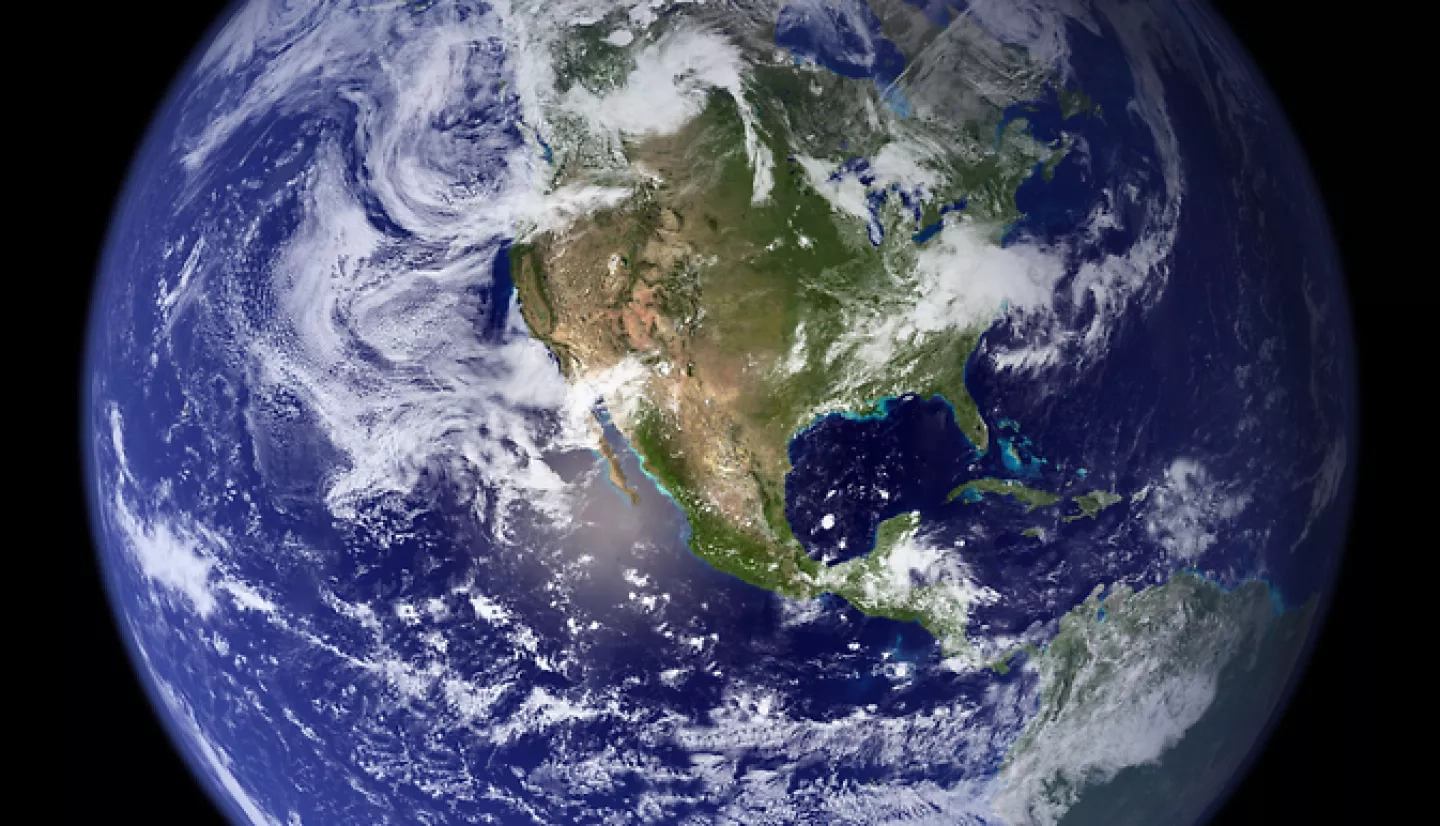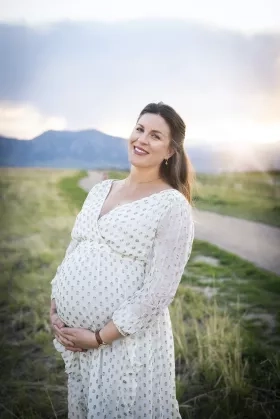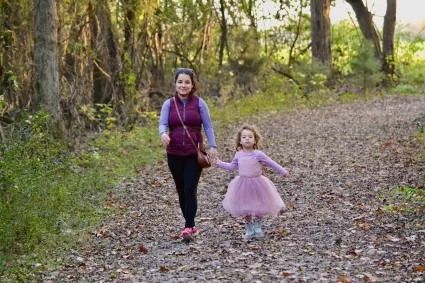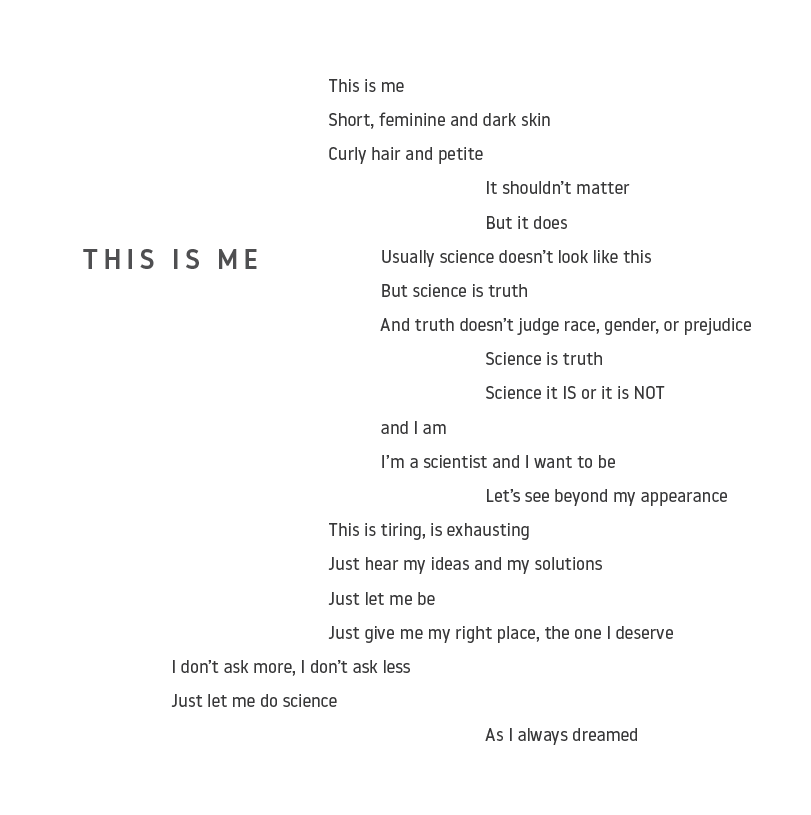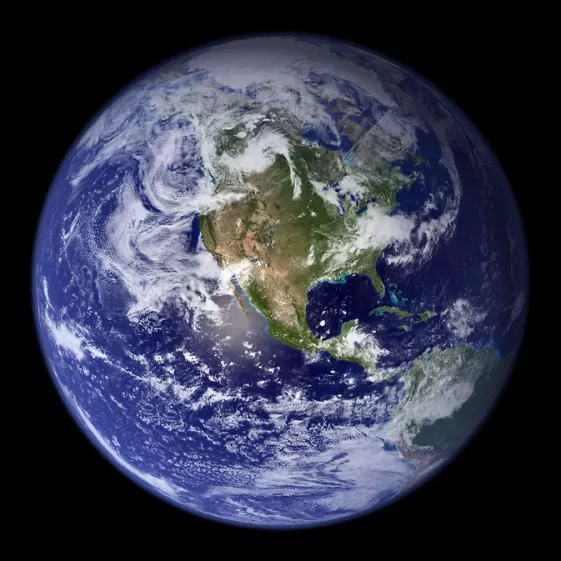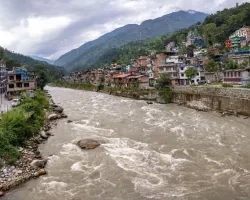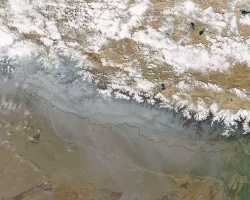Overcoming unequal treatment and outdated opinions about "who is a scientist" was the topic addressed by two Applied Sciences scientists on the podcast “Down to Earth.”
NASA researchers Alyssa Whitcraft and Africa Flores contributed as part of a series of conversations about science, careers, passions and challenges on this podcast. It is a production of the Geoscience and Remote Sensing Society, part of the professional society the Institute of Electrical and Electronics Engineers, of which Flores and Whitcraft are members.
In their episodes, Whitcraft and Flores discussed how exclusion and unequal treatment in science, technology, engineering and math (STEM) fields can throw obstacles in the paths of individual scientists and scientific progress overall. They also dove into ways that inclusivity can create a stronger scientific field when it’s welcoming to all.
Intersectionality in Remote Sensing
In her episode of the podcast, Whitcraft discussed her work as the deputy director and program manager of NASA’s Food Security and Agriculture program area, NASA Harvest. She advances Harvest’s mission in enabling the use of satellite Earth observations worldwide to benefit food security and environmental resiliency. Whitcraft said her experience as a woman in science has informed her understanding of the urgency of incorporating intersectionality in Earth science work. Intersectionality, Whitcraft explained, is a term that describes how social categorizations like ability, gender, and race can influence a person’s experience in the world, resulting in distinct advantages or disadvantages compared to others.
“My whole reality is informed by my personal lived experience, which is an outcome of who I am, where I grew up, and the societal messaging around what it means to be each of those things,” Whitcraft said. “Understanding why people make the land use decisions that they make, it’s going to vary drastically in each individual context.”
On the podcast Whitcraft discussed how her severe postpartum anxiety after the birth of her first son led her to reflect on how pregnancy and caregiving disproportionately impact women. She said obstacles to any demographic hurt not just individual opportunity but scientific discovery. Whitcraft noted that there is a lack of diverse representation across Earth science. She added, “how identities come together and they can be utilized to benefit or to oppress different people, is an important thing to look at when you’re trying to improve our field.”
Whitcraft works to weave awareness of how individual experiences can affect outcomes throughout her research, and to create a platform for a diversity of perspectives in Earth science – especially women in science.
Whitcraft’s podcast episode, titled “Down to Earth: Intersectionality in Remote Sensing,” can be found on Spotify, Apple Podcasts, and Podbean.
Seeking Equity in Science
Africa Flores, land cover land use change and ecosystems thematic lead for SERVIR-Global, was featured on a separate episode. Flores works with NASA to inform water resources decisions in her home country of Guatemala and to build the capacity on the use of Earth observations to monitor environmental change. She has faced prejudice throughout her career.
Flores said in the podcast that in Guatemala, the sexism she faced “was very up front,” but “[in the U.S.] it’s more subtle… It’s like, ‘You don’t exist.’” In reflecting on her comments in the podcast, Flores adds, “Early on in my career I realized that if I were a man, my achievements would not be questioned,” Flores said. “But despite those struggles, my passion to move the science forward to better understand our world and better manage our natural resources has driven my career.”
That passion has fueled Flores’s work to build knowledge in the use of synthetic aperture radar (SAR) technology, leading initiatives with SERVIR to lower the barrier to use SAR technology for forest monitoring and biomass estimation.
Flores remains determined to persevere in doing what she loves to set an example for young women, especially her daughter. In fact, it is that same determination that inspired her to write a poem about her experiences – and she is sharing it for the first time here to inspire other women who may face adversity in their path.
“Finding my own voice and sharing my experience has also helped me, and I hope other girls can relate and learn from these stories,” Flores said. “I have always had allies throughout my career. Without allies and the women who paved the way before us, I would not be here today.”
Flores’s podcast episode, titled “Down to Earth: All Things SAR” can be found on Spotify, Apple Podcasts, and Podbean.
